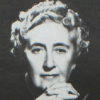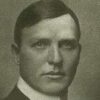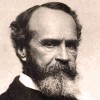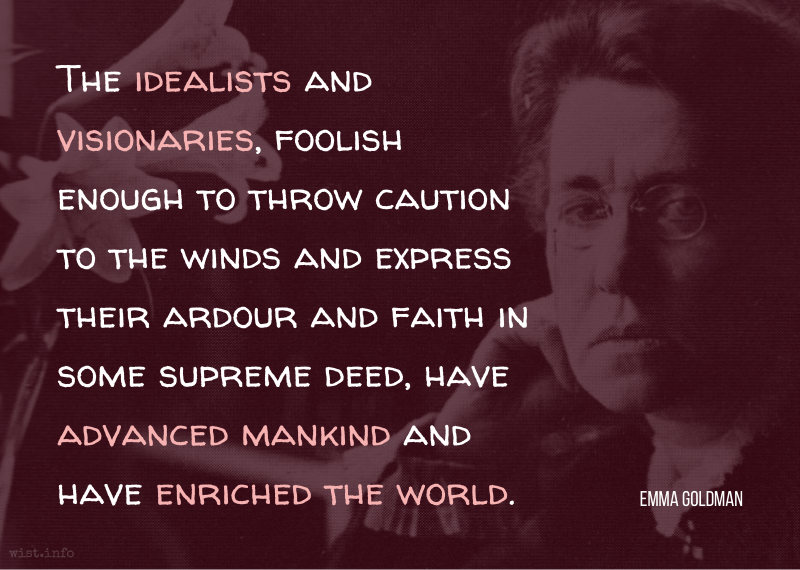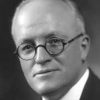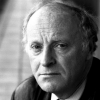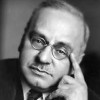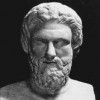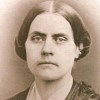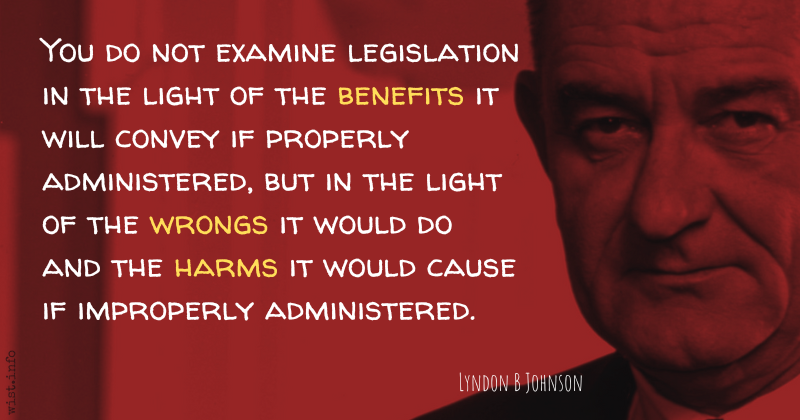Quotations about:
caution
Note not all quotations have been tagged, so Search may find additional quotes on this topic.
Misbehavior and punishment are not opposites that cancel each other; on the contrary, they breed and reinforce each other. Punishment does not deter misconduct. It makes the offender more skillful in escaping detection. When children are punished they resolve to be more careful, not more obedient or responsible.
Haim Ginott (1922-1973) Israeli-American school teacher, child psychologist, psychotherapist [b. Haim Ginzburg]
Between Parent and Child: Revised and Updated Edition, ch. 5 “Discipline” (2003 ed.) [with A. Ginott and H. W. Goddard]
(Source)
Everybody knows if you are too careful you are so occupied in being careful that you are sure to stumble over something.
Gertrude Stein (1874-1946) American expatriate author, feminist
Everybody’s Autobiography, ch. 1 (1937)
(Source)
Where large sums of money are concerned, it is advisable to trust nobody.
ACCOUNTABILITY, n. The mother of caution.
Ambrose Bierce (1842-1914?) American writer and journalist
“Accountability,” The Cynic’s Word Book (1906)
(Source)
Included in The Devil's Dictionary (1911).
Originally published in his "Cynic's Word Book" column in the New York American (1904-07-09) and "Cynic's Dictionary" column in the San Francisco Examiner (1904-07-17) as "the mother of remorse and great first cause of penitence."
Then Old Age said again, — Come, let us walk down the street together, — and offered me a cane, an eyeglass, a tippet, and a pair of over-shoes. — No, much obliged to you, said I. I don’t want those things, and I had a little rather talk with you here, privately, in my study. So I dressed myself up in a jaunty way and walked out alone; — got a fall, caught a cold, was laid up with a lumbago, and had time to think over this whole matter.
If you cannot be clever, be careful.
Minna Antrim (1861-1950) American epigrammatist, writer
Naked Truth and Veiled Illusions (1901)
(Source)
Self-control seldom leads astray.
[以約、失之者鮮矣。]
Confucius (c. 551- c. 479 BC) Chinese philosopher, sage, politician [孔夫子 (Kǒng Fūzǐ, K'ung Fu-tzu, K'ung Fu Tse), 孔子 (Kǒngzǐ, Chungni), 孔丘 (Kǒng Qiū, K'ung Ch'iu)]
The Analects [論語, 论语, Lúnyǔ], Book 4, verse 23 (4.23) (6th C. BC – AD 3rd C.) [tr. Leys (1997)]
(Source)
(Source (Chinese)). Alternate translations:
The cautious seldom err.
[tr. Legge (1861)]
Those who keep within restraints are seldom losers.
[tr. Jennings (1895)]
He who wants little seldom goes wrong.
[tr. Ku Hung-Ming (1898); alternate: "He who confines his sphere ..."]
The self-restrained seldom err.
[tr. Soothill (1910)]
Self-restraint avoids error.
[tr. Soothill (1910), alternate]
Those who have gone astray through self-restraint are few.
[tr. Soothill (1910), alternate]
Those who consume their own smoke seldom get lost. The concise seldom err.
[tr. Pound (1933)]
Those who err on the side of strictness are few indeed!
[tr. Waley (1938)]
When strict with oneself one rarely fails.
[tr. Ware (1950)]
It is rare for a man to miss the mark through holding on to essentials.
[tr. Lau (1979)]
There are few indeed who fail in something through exercising restraint.
[tr. Dawson (1993)]
Those who err through self-restraint are rare indeed.
[tr. Huang (1997)]
The persons who lose because of restraining themselves, are few.
[tr. Cai/Yu (1998), #89]
It is rare indeed for someone to go wrong due to personal restraint. [tr. Ames/Rosemont (1998)]
Those who err on the side of strictness are few.
[tr. Brooks/Brooks (1998)]
To lose by caution is rare indeed.
[tr. Hinton (1998)]
Very few go astray who comport themselves with restraint.
[tr. Slingerland (2003)]
Those who go wrong by holding back are few.
[tr. Watson (2007)]
Few are those who make mistakes by knowing to hold back.
[tr. Annping Chin (2014)]
If you practice self-control according to the rules of Li, you will make fewer mistakes.
[tr. Li (2020)]
“The choice is yours: to go or wait.”
“And it is also said,” answered Frodo: “Go not to the Elves for counsel, for they will say both no and yes.”
“Is it indeed?” laughed Gildor. “Elves seldom give unguarded advice, for advice is a dangerous gift, even from the wise to the wise, and all courses may run ill.”
J.R.R. Tolkien (1892-1973) English writer, fabulist, philologist, academic [John Ronald Reuel Tolkien]
The Lord of the Rings, Vol. 1: The Fellowship of the Ring, Book 1, ch. 3 “Three Is Company” (1954)
(Source)
Exercise caution in your business affairs;
for the world is full of trickery.
But let this not blind you to what virtue there is;
many persons strive for high ideals;
and everywhere life is full of heroism.
When you jump for joy, beware that no one moves the ground from beneath your feet.
[Gdy z radości podskoczysz do góry, uważaj, by ci ktoś ziemi spod nóg nie usunął.]
Stanislaw Lec (1909-1966) Polish aphorist, poet, satirist
Unkempt Thoughts [Myśli nieuczesane] (1957) [tr. Gałązka (1962)]
(Source)
Act as the wisest have acted before you, and do not commence your exercises in philosophy in those regions where an error can deliver you over to the executioner.
Georg C. Lichtenberg (1742-1799) German physicist, writer
Aphorisms, Notebook C, #16 [142] (1772-73) [tr. Hollingdale (1960)]
(Source)
Alternate translation: "Act as the wisest before you have acted, and do not begin your philosophical exercises where an error can deliver you into the hands of the executioner." [tr. Tester (2012)]
Our errors are surely not such awfully solemn things. In a world where we are so certain to incur them in spite of all our caution, a certain lightness of heart seems healthier than this excessive nervousness on their behalf.
William James (1842-1910) American psychologist and philosopher
“The Will to Believe,” sec. 7, New World (Jun 1896)
(Source)
Originally a lecture for the Philosophical Clubs of Yale and Brown Universities.
From time immemorial the wise and practical have denounced every heroic spirit. Yet it has not been they who have influenced our lives. The idealists and visionaries, foolish enough to throw caution to the winds and express their ardour and faith in some supreme deed, have advanced mankind and have enriched the world.
Emma Goldman (1869-1940) Lithuanian-American anarchist, activist
Living My Life, Part 2, ch. 39 (1931)
(Source)
If you wish to succeed in life, make perseverance your bosom friend, experience your wise counselor, caution your elder brother, and hope your guardian genius.
Joseph Addison (1672-1719) English essayist, poet, statesman
(Attributed)
Broadly attributed to Addison, but possibly a 19th Century creation. The earliest found appearance is in 1854, and the earliest attribution to Addison in in 1862.
Don’t play for safety.
It’s the most dangerous thing in the world.
Combining rational intelligence with all the imagination we can command, let us project ourselves forcefully into the future. In doing so, let us not fear occasional error — the imagination is only free when fear of error is temporarily laid aside. Moreover, in thinking about the future, it is better to err on the side of daring, than the side of caution.
No matter how daring or cautious you may choose to be, in the course of your life you are bound to come into direct physical contact with what’s known as Evil. I mean here not a property of the gothic novel but, to say the least, a palpable social reality that you in no way can control. No amount of good nature or cunning calculations will prevent this encounter. In fact, the more calculating, the more cautious you are, the greater is the likelihood of this rendezvous, the harder its impact. Such is the structure of life that what we regard as Evil is capable of a fairly ubiquitous presence if only because it tends to appear in the guise of good. You never see it crossing your threshold announcing itself: “Hi, I’m Evil!” That, of course, indicates its secondary nature, but the comfort one may derive from this observation gets dulled by its frequency.
Joseph Brodsky (1940-1996) Russian-American poet, essayist, Nobel laureate, US Poet Laureate [Iosif Aleksandrovič Brodskij]
Commencement Address, Williams College (24 May 1984)
(Source)
Of all forms of caution, caution in love is perhaps the most fatal to true happiness.
Bertrand Russell (1872-1970) English mathematician and philosopher
The Conquest of Happiness, ch. 12 (1930)
(Source)
It is impossible to live without failing at something, unless you live so cautiously that you might as well not have lived at all — in which case, you fail by default.
Joanne "Jo" Rowling (b. 1965) British novelist [writes as J. K. Rowling and Robert Galbraith]
“The Fringe Benefits of Failure and the Importance of Imagination,” Commencement Address, Harvard (5 Jun 2008)
(Source)
I see only one danger about all this — that you might be led to take too many precautions. To take precautions, that, I find, is really dangerous. Courage is the only precaution a human being needs!
Alfred Adler (1870-1937) Austrian psychologist
(Attributed)
(Source)
Comment to a patient who chronically overworked herself. In Phyllis Bottome, Alfred Adler: A Biography, ch. 4 (1939). Often paraphrased, "The chief danger in life is that you may take too many precautions."
If the hive be disturbed by rash and stupid hands, instead of honey, it will yield us bees.
Ralph Waldo Emerson (1803-1882) American essayist, lecturer, poet
“Prudence,” Essays: First Series, ch. 7 (1841)
(Source)
And as she looked about, she did behold
How over that same door was likewise writ,
Be bold, be bold, and everywhere Be bold,
That much she mused, yet could not construe it
By any riddling skill or common wit.
At last she spied at that room’s upper end
Another iron door, on which was writ,
Be not too bold.Edmund Spenser (c. 1552-1599) English poet
The Faerie Queen, Book 3, Canto 11, st. 54 (1590-96)
(Source)
EPOPS: You’re mistaken: men of sense often learn from their enemies. Prudence is the best safeguard. This principle cannot be learned from a friend, but an enemy extorts it immediately. It is from their foes, not their friends, that cities learn the lesson of building high walls and ships of war. And this lesson saves their children, their homes, and their properties.
CHORUS [LEADER]: It appears then that it will be better for us to hear what they have to say first; for one may learn something at times even from one’s enemies.
Aristophanes (c. 450-c. 388 BC) Athenian comedic playwright
The Birds, l. 375ff (414 BC) [tr. Anon. (1812), Ramage (1864)]
(Source)
Alt. trans. [Hickie (1853)]:
EPOPS: Yet, certainly, the wise learn many things from their enemies; for caution preserves all things. From a friend you could not learn this, but your foe immediately obliges you to learn it. For example, the states have learned from enemies, and not from friends, to build lofty walls, and to possess ships of war. And this lesson preserves children, house, and possessions.
CHORUS [LEADER]: It is useful, as it appears to me, to hear their arguments first; for one might learn some wisdom even from one's foes.
Alt. trans. [O'Neill (1938)]:
EPOPS: The wise can often profit by the lessons of a foe, for caution is the mother of safety. It is just such a thing as one will not learn from a friend and which an enemy compels you to know. To begin with, it's the foe and not the friend that taught cities to build high walls, to equip long vessels of war; and it's this knowledge that protects our children, our slaves and our wealth.
LEADER OF THE CHORUS: Well then, I agree, let us first hear them, for that is best; one can even learn something in an enemy's school.
“We canna just rush in, ye ken.”
A big bearded Feegle raised his hand. “Point ‘o order, Big Man. Ye can just rush in. We always just rush in.”
“Aye, Big Yan, point well made. But ye gotta know where ye’re just gonna rush in. Ye cannae just rush in anywhere. It looks bad, havin’ to rush oout again straight awa’.”
A wise Man will keep his Suspicions muzzled, but he will keep them awake.
George Savile, Marquis of Halifax (1633-1695) English politician and essayist
“Of Caution and Suspicion,” Political, Moral, and Miscellaneous Thoughts and Reflections (1750)
(Source)
Every boddy in this world wants watching, but none more than ourselves.
[Everybody in this world wants watching, but none more than ourselves.]
Josh Billings (1818-1885) American humorist, aphorist [pseud. of Henry Wheeler Shaw]
Everybody’s Friend, Or; Josh Billing’s Encyclopedia and Proverbial Philosophy of Wit and Humor, ch. 142 “Affurisms: Fust Impreshuns” (1874)
(Source)
FALSTAFF: The better part of valour is discretion.
William Shakespeare (1564-1616) English dramatist and poet
Henry IV, Part 1, Act 4, sc. 4, l. 122ff (4.4.122) (1597)
(Source)
When a rogue kisses you, count your teeth.
[Ven a ganef kusht, darf men zikh di tseyn ibertseyln.]
[װען אַ גנבֿ קושט, דאַרף מען זיך די צײן איבערצײלן.]
(Other Authors and Sources)
Yiddish proverb
(Source)
Alt. trans.: "When a thief kisses you, count your teeth."
Distrust and caution are the parents of security.
Benjamin Franklin (1706-1790) American statesman, scientist, philosopher, aphorist
Poor Richard (1733)
(Source)
FRIAR LAWRENCE: Wisely and slow. They stumble that run fast.
William Shakespeare (1564-1616) English dramatist and poet
Romeo and Juliet, Act 2, sc. 3, l. 101 (2.3.101) (c. 1594)
(Source)
I think perhaps we want a more conscious life. We’re tired of drudging and sleeping and dying. We’re tired of seeing just a few people able to be individualists. We’re tired of always deferring hope till the next generation. We’re tired of hearing politicians and priests and cautious reformers (and the husbands!) coax us, “Be calm! Be patient! Wait! We have the plans for a Utopia already made; just wiser than you.” For ten thousand years they’ve said that. We want our Utopia now — and we’re going to try our hands at it.
Sinclair Lewis (1885-1951) American novelist, playwright
Main Street, ch. 16 [Carol] (1920)
(Source)
It is when we all play safe that we create a world of utmost insecurity.
Dag Hammarskjöld (1905-1961) Swedish diplomat, author, UN Secretary-General (1953-61)
Speech, 180th Anniversary of the Virginia Declaration of Rights, Williamsburg (15 May 1956)
(Source)
Respectfulness, without the rules of propriety, becomes laborious bustle; carefulness, without the rules of propriety, becomes timidity; boldness, without the rules of propriety, becomes insubordination; straightforwardness, without the rules of propriety, becomes rudeness.
[恭而無禮則勞、愼而無禮則葸、勇而無禮則亂、直而無禮則絞。]
Confucius (c. 551- c. 479 BC) Chinese philosopher, sage, politician [孔夫子 (Kǒng Fūzǐ, K'ung Fu-tzu, K'ung Fu Tse), 孔子 (Kǒngzǐ, Chungni), 孔丘 (Kǒng Qiū, K'ung Ch'iu)]
The Analects [論語, 论语, Lúnyǔ], Book 8, verse 2 (8.2.1) (6th C. BC – AD 3rd C.) [tr. Legge (1861)]
(Source)
(Source (Chinese)). Brooks (below) believes this text was interpolated into Book 8 at the time that Book 14 was collected. Alternate translations:
Without the Proprieties, we have these results: for deferential demeanour, a worried one; for calm attentiveness, awkward bashfulness; for manly conduct, disorderliness; for straightforwardness, perversity.
[tr. Jennings (1895)]
Earnestness without judgment becomes pedantry; caution without judgment becomes timidity; courage without judgment leads to crime; uprightness without judgment makes men tyrannical.
[tr. Ku Hung-Ming (1898)]
Courtesy uncontrolled by the laws of good taste becomes labored effort, caution uncontrolled becomes timidity, boldness uncontrolled becomes recklessness, and frankness uncontrolled become effrontery.
[tr. Soothill (1910)]
Respect without rules of procedure becomes laborious fuss: scrupulosity without rules of procedure, timidity (fear to show the thought); boldness without such rules breeds confusion; directness without rules of procedure becomes rude.
[tr. Pound (1933)]
Courtesy not bounded by the prescriptions of ritual becomes tiresome. Caution not bounded by the prescriptions of ritual becomes timidity, daring becomes turbulence, inflexibility becomes harshness.
[tr. Waley (1938)]
Not to follow the rites in being modest is annoyance. Not to follow them in exercising care is timidity. Not to follow them in acts of bravery is confusion. Not to follow them in our uprightness is brusqueness.
[tr. Ware (1950)]
Unless a man has the spirit of the rites, in being respectful he will wear himself out, in being careful he will become timid, in having courage he will become unruly, and in being forthright he will become intolerant.
[tr. Lau (1979)]
If one is courteous but does without ritual, then one dissipates one's energies; if one is cautious but does without ritual, then one becomes timid; if one is bold but does without ritual, then one becomes reckless; if one is forthright but does without ritual, then one becomes rude.
[tr. Dawson (1993)]
Without ritual, courtesy is tiresome; without ritual, prudence is timid; without ritual, bravery is quarrelsome; without ritual, frankness is hurtful.
[tr. Leys (1997)]
Respectfulness without the rituals becomes laboriousness; discretion without the rituals becomes apprehensiveness; courage without the rituals becomes rebelliousness; straightforwardness without the rituals becomes impetuosity.
[tr. Huang (1997)]
One would be tired if one is humble but not polite; One would be week if one is cautious but not polite; One would be foolhardy if one is brave but not polite; One would be caustic if one is frank but not polite.
[tr. Cai/Yu (1998), #190]
Deference unmediated by observing ritual propriety [li] is lethargy; caution unmediated by observing ritual propriety is timidity; boldness unmediated by observing ritual propriety is rowdiness; candor unmediated by observing ritual propriety is rudeness.
[tr. Ames/Rosemont (1998)]
If he is respectful without propriety, he becomes wearisome. If he is careful without propriety, he becomes finicky. If he is brave without propriety, he becomes disruptive. If he is upright without propriety, he becomes censorious.
[tr. Brooks/Brooks (1998)]
Reverence becomes tedium without Ritual, and caution becomes timidity. Without Ritual, courage becomes recklessness, and truth becomes intolerance.
[tr. Hinton (1998)]
If you are respectful but lack ritual you will become exasperating; if you are careful but lack ritual you will become timid; if you are courageous but lack ritual you will become unruly; and if you are upright but lack ritual you will become inflexible.
[tr. Slingerland (2003)]
Courtesy without ritual becomes labored; caution without ritual becomes timidity; daring without ritual becomes riotousness; directness without ritual becomes obtrusiveness.
[tr. Watson (2007)]
Unless a man acts according to the spirit of the rites, in being respectful, he will tire himself out; in being cautious, he will become timid; in being brave, he will become unruly; in being forthright, he will become derisive.
[tr. Chin (2014)]
Love your neighbour, yet pull not downe your hedge.
George Herbert (1593-1633) Welsh priest, orator, poet.
Jacula Prudentum, or Outlandish Proverbs, Sentences, &c. (compiler), # 141 (1640 ed.)
(Source)
Cautious, careful people, always casting about to preserve their reputation and social standing, never can bring about a reform. Those who are really in earnest must be willing to be anything or nothing in the world’s estimation, and publicly and privately, in season and out, avow their sympathy with despised and persecuted ideas and their advocates, and bear the consequences.
Humanity has advanced, when it has advanced, not because it has been sober, responsible and cautious, but because it has been playful, rebellious, and immature.
We should be careful to get out of an experience only the wisdom that is in it — and stop there; lest we be like the cat that sits down on a hot stove-lid. She will never sit down on a hot stove-lid again — and that is well; but also she will never sit down on a cold one anymore.
And, to conclude, he that leaveth nothing to Chance will do few things ill, but he will do very few things.
George Savile, Marquis of Halifax (1633-1695) English politician and essayist
“Of Caution and Suspicion,” Political, Moral, and Miscellaneous Thoughts and Reflections (1750)
(Source)
Sometimes incorrectly attributed to Edward Wood, Earl of Halifax (1881-1959).
He that will not sail till all Dangers are over, must never put out to Sea.
Thomas Fuller (1654-1734) English physician, preacher, aphorist, writer
Gnomologia: Adages and Proverbs, #2353 (1732)
(Source)
HECTOR: Modest doubt is called
The beacon of the wise.William Shakespeare (1564-1616) English dramatist and poet
Troilus and Cressida, Act 2, sc. 2, l. 15ff (2,2,15-16) (1602)
(Source)
You do not examine legislation in the light of the benefits it will convey if properly administered, but in the light of the wrongs it would do and the harms it would cause if improperly administered.




